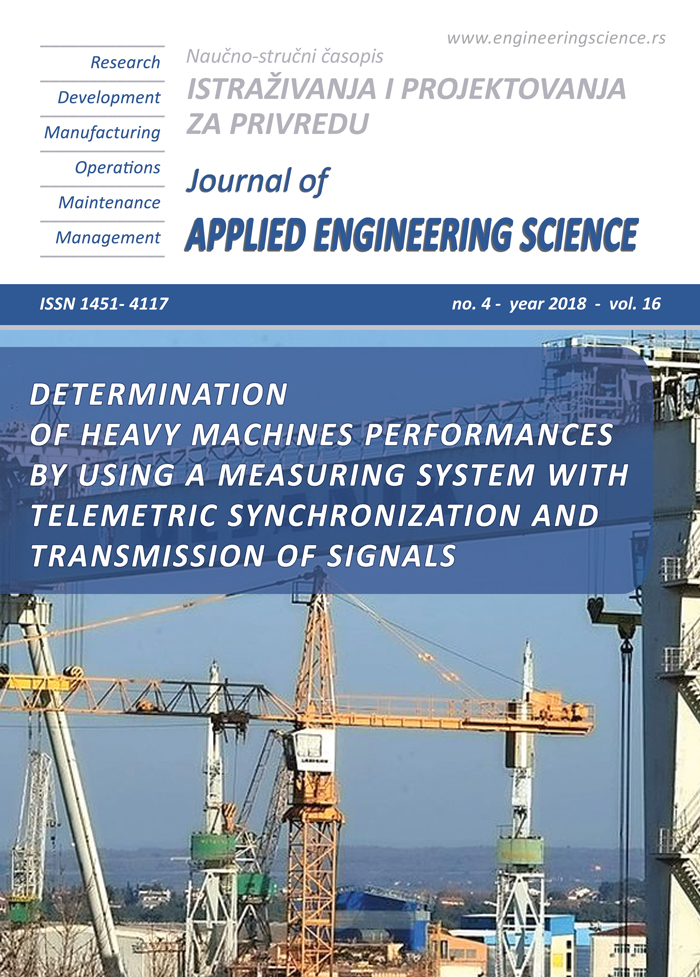Modeling of the Learning Process in Adaptive Training Complexes
Abstract
The article is devoted to the solving of increasing of the effectiveness of training in adaptive training complexes due to individualization of learning process, adaptation for psychological, physical, physiological, anthropometrical and intellectual features of each person. The questions of modeling of learning process in training systems and its study, formalization and software realization are considered. The task of learning process organization in adaptive training complexes (ATC) by optimal way in accordance with selected criteria is stated on the base of developed mathematical model considering the individual features of learners. Using the available approaches to modeling of learning process, we adjusted the psychological, intellectual, physical, physiological and anthropometric metrics concepts, the complexity of the problem is solved. The described statement of a problem of learning process organization, criteria of optimization and mathematical model allow choosing the most suitable forms of studying, methodic, software and hardware tools for learning process on the stage of learning techniques design. The obtained scientific results can be used both at the stage of learning systems design and at the stages of their functioning for the aims of efficiency of
References
Peet M. (2012). Leadership transitions, tacit knowledge sharing and organizational generativity. Journal of knowledge management, 16(1), 45-60.
Csikszentmihalyi, M., & Wolfe, R. (2014). New conceptions and research approaches to creativity: Implications of a systems perspective for creativity in education. In The systems model of creativity (pp. 161-184). Springer Netherlands.
Crisp, G., & Delgado, C. (2014). The impact of developmental education on community college persistence and vertical transfer. Community College Review, 42(2), 99-117.
Dyakonov, G. S., Zhurakovsky, V. M., Ivanov V. G., Kondratyev V. V., Kuznetsov, A. M., & Nureyev, N. K. (2009). Training of engineers in a real-virtual environment of advanced training.
Ryzhkova, M. N. (2015). Mathematical model of the process of learning management. Bulletin of Cherepovets state University, (6 (67)).
Ley, T., Ulbrich, A., Scheir, P., Lindstaedt, S. N., Kump, B., & Albert, D. (2008). Modeling competencies for supporting work-integrated learning in knowledge work. Journal of knowledge management, 12(6), 31-47.
Hung, D., & Khine, M. S. (Eds.). (2006). Engaged learning with emerging technologies. Springer.
Williams, P. W. (2009). Assessing mobile learning effectiveness and acceptance (Doctoral dissertation, The George Washington University).
Rahamat, R., Shah, P. M., Din, R., Puteh, S. N., Embi, M. A., & Aziz, J. A. (2011). Learners’ Evaluation of an e-Learning Material. Proceedings of the 10th WSEAS e-Activities.
Berestneva, O., Marukhina, O., Benson, G., & Zharkova, O. (2015). Students’ competence assessment methods. Procedia-Social and Behavioral Sciences, 166, 296-302.
Ivanov, V. G., Shaidullina, A. R., Drovnikov, A. S., Yakovlev, S. A., & Masalimova, A. R. (2014). Regional experience of students’ innovative and entrepreneurial competence forming. Review of European Studies, 7(1), 35.
Angelo, R. L., Ryu, R. K., Pedowitz, R. A., Beach, W., Burns, J., Dodds, J., ... & Gallagher, A. G. (2015). A proficiency-based progression training curriculum coupled with a model simulator results in the acquisition of a superior arthroscopic Bankart skill set. Arthroscopy, 31(10), 1854-1871.
Xu, Z., Lu, X. Z., Guan, H., Chen, C., & Ren, A. Z. (2014). A virtual reality based fire training simulator with smoke hazard assessment capacity. Advances in engineering software, 68, 1-8.
Manca, D., Brambilla, S., & Colombo, S. (2013). Bridging between virtual reality and accident simulation for training of process-industry operators. Advances in Engineering Software, 55, 1-9.
Torkunova, J. V., Khairullina, E. R., Komelina, V. A., Volkova, N. V., & Ponomarev, K. N. (2014). The peculiarities of qualitative information, analytical maintenance innovative and educational activity technological projection in higher educational institution. Life Science Journal, 11(8), 498-503.
Merzon, E. E., Fayzullina, A. R., Ibatullin, R. R., Krylov, D. A., Schepkina, N. K., Pavlushkina, T. V., & Khairullina, E. R. (2014). Organizational and pedagogical conditions of academic mobility development of students at school of higher professional education. Review of European Studies, 7(1), 46.
Kurilovas, E., Kubilinskiene, S., & Dagiene, V. (2014). Web 3.0–Based personalisation of learning objects in virtual learning environments. Computers in Human Behavior, 30, 654-662.

